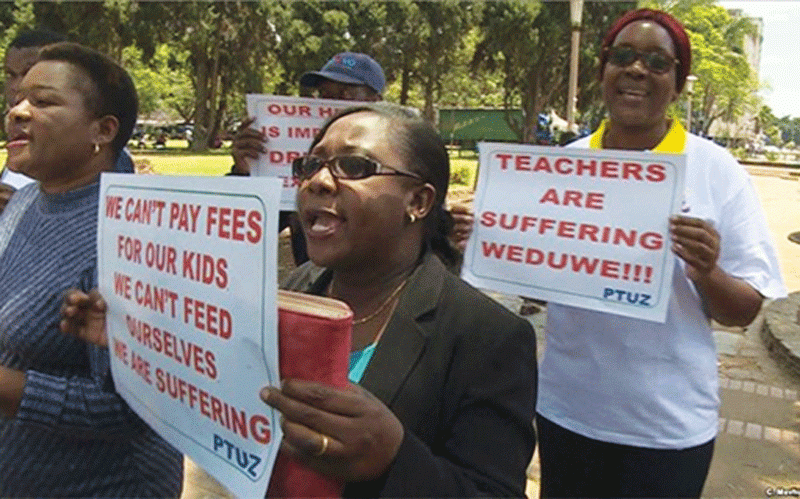
In one of our stories last week, civil servants are longing for the good old days during the Government of National Unity (GNU) when they earned decent salaries.
The GNU, which ran from 2009 to 2013, is credited with stabilising the economy after a record-breaking hyperinflation, worsened by months of political violence that citizens endured in the run up to disputed polls.
The ministers under GNU did not wave the magic wand, but capitalised on an avalanche of confidence following a union that had the late former President Robert Mugabe’s Zanu PF, the late Morgan Tsvangirai’s MDC and the smaller MDC formation led by Arthur Mutambara (although Welshman Ncube pulled the strings from the background).
Before the GNU, Zanu PF had declared that it would not form a government with the MDC as the two were like water and oil as they had different ideologies.
That the parties eventually formed a government was enough to instil the confidence that had been missing over the years.
Civil servants say their current salaries have made them the “working poor” as they fall short of their monthly requirements and have nostalgia for the US$540 minimum monthly salary they used to earn.
Most civil servants are resorting to side hustles in order to make ends meet.
Teachers have intensified extra lessons, despite threats by the government that it will descend on them as it is illegal.
- Teachers, other civil servants face off
- Economists caution RBZ on cash limits
- Mwonzora skeletons tumble
- Economists caution RBZ on cash limits
Keep Reading
Some members of the security forces have been implicated in armed robberies.
The predicament of civil servants cuts across the whole nation, except for a few privileged senior government officials and a motley band of tenderpreneurs that claim to have captured President Emmerson Mnangagwa.
There is no doubt that confidence is missing in the economy, more so after a disputed election and the war-like mood of the current administration.
The second republic has turned out to be a mirror image of its predecessor in some instances and worse in others, according to analysts.
Critics say Mnangagwa squandered the chance bestowed upon him after a military-assisted transition in November 2017.
Those that made loud calls for Zimbabweans to give Mnangagwa a chance have turned out to be the administration’s top critics, alarmed by the inability to get things right.
In his inaugural address in 2017, Mnangagwa urged citizens to “shed misbehaviours and acts of indiscipline which have characterised the past”.
“Acts of corruption must stop forthwith. Where these occur swift justice must be served to show each and all that crime and other acts of economic sabotage can only guarantee ruin to perpetrators. We have to aspire to be a clean nation, one sworn to high moral standards and deserved rewards,” Mnangagwa said, warning that “grief awaits those who depart from the path of virtue and clean business”.
The recently leaked audios have shown that this administration has created untouchables, exposing the depth of corruption in the second republic.
What has changed since November 24, 2017 when Mnangagwa promised to break with the past?
“ …as we chart our way forward, we must accept that our challenges as a nation emanate in part from the manner in which we have managed our politics, both nationally and internationally, leading to circumstances in which our country has undeservedly been perceived or classified as a pariah State,” Mnangagwa said then.
We have learnt nothing from history. Critics say Zimbabwe has reached a new low to the extent that people are discussing on social media platforms whether Ian Smith’s regime was better than the second republic.






